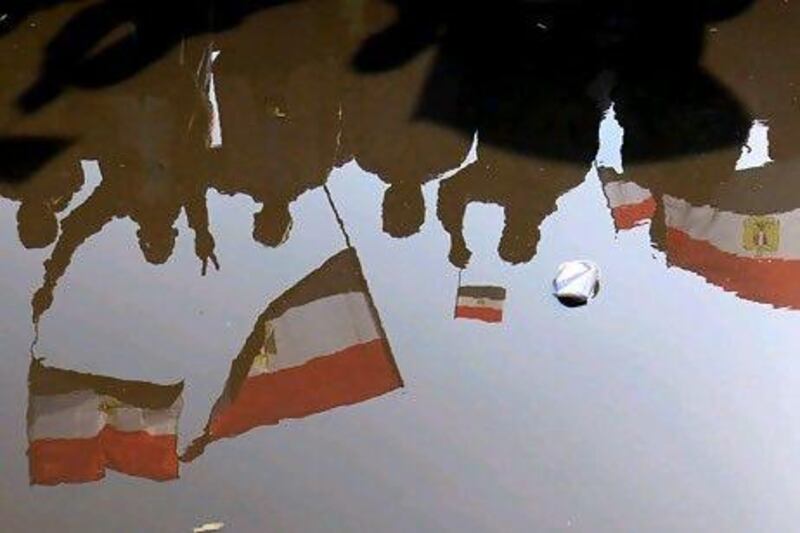With the fall of their dictators last year many say a new era of peace and prosperity awaits the likes of Libya, Egypt and Tunisia. But it is not as simple as that, Binod Shankar writes.
There is this idea floating around that since the dictatorships in Libya, Egypt, Tunisia and Yemen have been kicked out, these countries are going to see huge foreign investment inflows.
In addition, so the argument goes, unemployment will dip and capital markets are going to soar.
The theory says that in the short term things will be chaotic but in the long term democracy will result in more open, larger economies.
At least that is what I hear at dinner parties.
This is patently and dangerously false. Let me be absolutely frank; democracy does not always translate into economic growth and especially in parts of the Middle East and North Africa region that is even less certain.
Many people seem to think that if all the money stolen by Libya's Qaddafi, and allegedly by Tunisia's deposed leader Zine El Abidine Ben Ali and Egypt's Hosni Mubarak, is brought back, then all the economic problems will be solved. While the fight against corruption is an important part of measures aimed at stimulating growth, this is far from enough.
These countries need to strengthen institution-building, respect for the rule of law, education, work ethic and physical infrastructure rather than just bring back a few stolen billions.
The sense of entitlement is another issue. Ever since Egypt's former leader Hussein's mix of nationalism and socialism spread throughout the Middle East in the 1950s and 1960s, Arab economies have been dominated by the government. So much so that the private sector is small and feeble.
And at the micro level, there is a shocking sense of entitlement that the government owes everyone a living and everyone's dream is a government job. You are nothing if you don't have one and being self-employed is seen as the last refuge of the really desperate. Unless this attitude changes, what this will build is a vast, incompetent and corrupt bureaucracy that holds back economic growth, reinforcing a vicious cycle that led to the uprisings in the first place.
The rise of political Islam is another reason to be cautious. It is dangerous and misleading to link religion with economic growth but secular parties have little influence in Arab Spring countries. If the Muslim Brotherhood comes to power in Egypt, as it was claiming yesterday, it may take an aggressively anti-United States foreign policy, something which will play very well to the masses and vested interests in the religious hierarchy. Venezuela, Iraq and the Iran are examples that spring to mind.
An anti-US stance would be a big mistake, slowing foreign investment to a trickle and at worst introducing the risk of sanctions.
The tribal structure of many of the Arab Spring nations is another factor of instability. The former regimes put a lid on tribal rivalry through their oppressive internal security networks and often playing off one tribe against the other. The Arab Spring has validated a resurgence of tribal allegiance and this presents major risks to the integrity of some nation states in the region. A sobering lesson in what could follow was witnessed after the death of Tito, the Yugoslav dictator who died in office in 1980. It has been 17 years since the Dayton Accord halted hostilities in the Balkans, but Zagreb and Sarajevo are still near the bottom of any investor's hitlist.
There are few examples of successful democratic transition in the Arab world. Lebanon could be seen as the only democracy in the region, but behind the antics and controversies is a perfect example of what can go wrong. More than two decades after the civil war ended, Lebanon is still a basket-case economically, politically and militarily.
Once the glow of change fades, disenchantment could set in if the young still have no jobs and corruption remains endemic.
The incumbents risk being removed quickly to be replaced by another gang and I would not be surprised if many residents soon felt a pang of nostalgia for the days of dictatorship.
Investors will be reluctant to commit funds to a country where governments and policies can change overnight. The market may not reward investors for being particularly brave.
Binod Shankar is a CFA charter holder and is the Managing Director of Genesis Institute, a financial training company based in Dubai
twitter: Follow and share our breaking business news. Follow us
iPad users can follow our twitterfeed via Flipboard - just search for Ind_Insights on the app.





